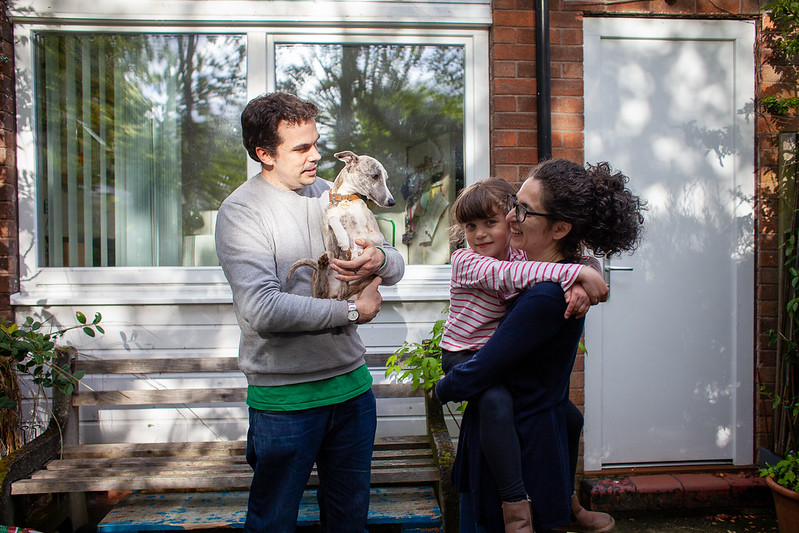Find out how Centre for Sustainable Energy helped stimulate local supply and demand for low carbon retrofit in the West of England by connecting interested homeowners and skilled building contractors.
Improving the energy efficiency of UK homes is central to delivering our net zero climate change targets. But as troubled schemes like the Green Homes Grant have shown us, reaching that goal is far from simple. Homeowners need to understand the best route to making their home efficient and trust they are making a good investment, but they also need to be able to hire the right people to do the job.
Local authorities have an important role to play, because supporting upgrades to homes can boost local economies while tackling fuel poverty, lowering carbon emissions and creating new and better jobs.
Launching a targeted, bottom-up model in the West of England
The Centre for Sustainable Energy recently completed Futureproof, a three-year pilot project in this area funded by the Department for Business, Energy and Industrial Strategy. This tested a targeted, bottom-up model for building local supply chains and growing the market for owner-occupier-led low carbon retrofit in the West of England. The lessons we gathered can help local authorities implement their own schemes – or work with other organisations taking on the challenge.
The landscape for funding domestic level retrofit has changed dramatically in the last year. We have moved from a position of very little funding to large national and regional opportunities. Meanwhile, new standards bring new opportunities for advice services, like home assessments and retrofit plans.
Futureproof offers a service to homeowners who want to carry out sustainable home improvements, providing advice and support to help them understand what solutions are best suited to their home, lifestyle and budget, and to maximise energy savings. The Futureproof scheme also offered builders the opportunity to improve sustainable building knowledge through workshops and online training sessions. They could then access referral opportunities to the large Futureproof customer base of homeowners seeking their green building skills.
The scheme is now well known across the region and has enabled more local builders and contractors to move into this emerging market.
Working with residents
Who did we target? We used Experian’s MOSAIC data to segment consumers in the local area, and then identified households that might want to retrofit their home and faced the fewest financial barriers to doing so. This led us people living in large homes with school age children and household incomes above £70,000. To help generate demand for retrofit from these households we ran physical and virtual Green Open Homes events.
Aside from these events we didn’t need a huge amount of marketing to stimulate demand. The Green Homes Grant created a huge amount of extra demand from less engaged households who wanted to chase grant funding for windows rather than focus on measures like insulation which may be better for their property.
We set out to test a range of advice techniques and surveys. We offered our own home visits, thermographic surveys from the local CHEESE project and a retrofit survey from an independent assessor. We remained impartial from the builder, installer and manufacturer at all times. That’s really important when there are so many different viewpoints, particularly around insulating solid walls in older properties.
Feedback from one of our customers highlights this challenges: “Thank you again for all your advice on my internal wall insulation… it was so difficult wading through all the different and completely contradictory views out there, so I really appreciated your balanced and thoughtful perspectives on things.”
We reviewed and adjusted our advice service after the introduction of the PAS 2035 quality standard in 2020. The new standard aims to improve standards in the retrofit industry, in particular ensuring that the whole house is considered when you are retrofitting your home. To capitalise on this new opportunity we have trained up our staff to become assessors and coordinators, and licensed new tools and software to ensure we can deliver our service. The success of this pilot inspired us to develop a menu of further advice services. Offering a medium term Retrofit Plan to householders is central to our offer.

Support for jobs and skills is crucial
In partnership with not-for-profit training organisation The Green Register, we also developed local capacity to deliver high quality retrofit. Initially, The Green Register offered face to face training to builders and installers, this included toolbox talks where skilled tradespeople would demonstrate building techniques to their peers on-site. Once builders and installers had completed a number of these courses they became a Futureproof Approved Builder (FAB).
Coronavirus led to a huge change in our approach, and saw The Green Register create the Futureproof Essentials online course. While they hope to return to classroom based training in the near future, the essentials course will hopefully mark the baseline level of required knowledge in the future.
We’ve now got a network of 70 FABs. While training builders and installers remains an important part of Futureproof, much more work is still needed to scale the supply chain to the size needed to meet our Net Zero targets and the huge latent demand from householders. The Green Homes Grant, scrapped earlier this year, has demonstrated that there’s a huge hunger for retrofit with 123,000 applications relative to 5,800 installs. We spoke to one installer who had over 60,000 enquiries within the first month of the Green Homes Grant opening.
This is a hard nut to crack, however. Good tradespeople are already busy and there’s a shortage of them across all the trades, from plasterers and joiners to plumbers and electricians. We can continue to find existing businesses to upskill, but to complete enough installations we need more people in the industry. This demands Government action – but we’d also urge all local authorities to back local initiatives that supports retrofit supply chain development.

For more insights, explore Ashden’s collection of video presentations on home retrofit – all created specifically for UK local authorities.
